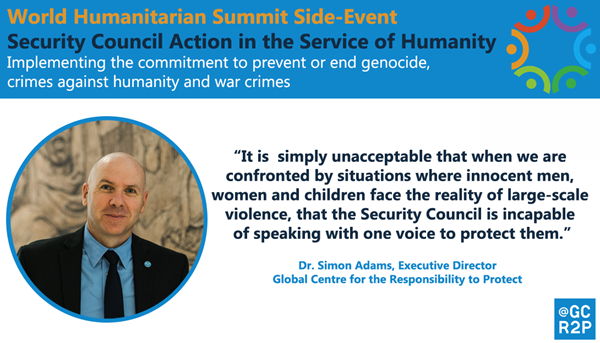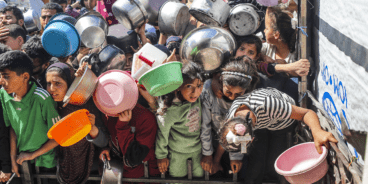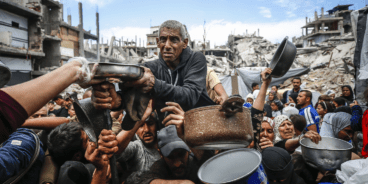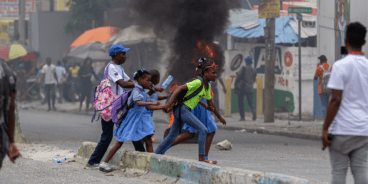Atrocity Alert No. 6: Iraq and the World Humanitarian Summit
Atrocity Alert is a weekly publication by the Global Centre for the Responsibility to Protect highlighting and updating situations where populations are at risk of, or are enduring, mass atrocity crimes.
Iraq
On 23 May Iraqi Security Forces began a major offensive to retake Fallujah from the Islamic State of Iraq and the Levant (ISIL). While the government instructed thousands of civilians remaining in Fallujah to leave and promised safe passage, ISIL has prevented most people from doing so. Civilians have been trapped in the city and suffering from acute shortages of food and medicine, with no access to humanitarian aid, since December 2015.
World Humanitarian Summit
With more than 60 million people around the world displaced by conflict, UN Secretary-General Ban Ki-moon convened the World Humanitarian Summit from 23 to 24 May in Istanbul, Turkey. The Summit brought together delegates from more than 170 countries, as well as intergovernmental organizations and leaders within civil society, to discuss an “Agenda for Humanity.”
UN and humanitarian partners are currently responding to four “Level-3” emergencies – the most severe humanitarian crises – in Iraq, South Sudan, Syria and Yemen. In each of these situations, as well as many others, the world is witnessing widespread and systematic mass atrocity crimes. As UN Deputy-Secretary-General Jan Eliasson noted in his opening remarks to a High-Level Roundtable at the Summit, “International humanitarian and human rights law are under assault… More than 150 years of achievements to protect the most vulnerable during conflict are unraveling. The Geneva Conventions seem to have been forgotten.”
During the Summit, Global Centre Executive Director Dr. Simon Adams moderated a side event, “Security Council Action in the Service of Humanity,” hosted by the Foreign Minister of Liechtenstein, and also spoke at a number of other sessions.

Read Next

Unified Call to Confront Famine in Gaza: Launch the Diplomatic Humanitarian Convoy Now

Atrocity Alert No. 437: Israel and the Occupied Palestinian Territory, Ukraine and Nigeria
